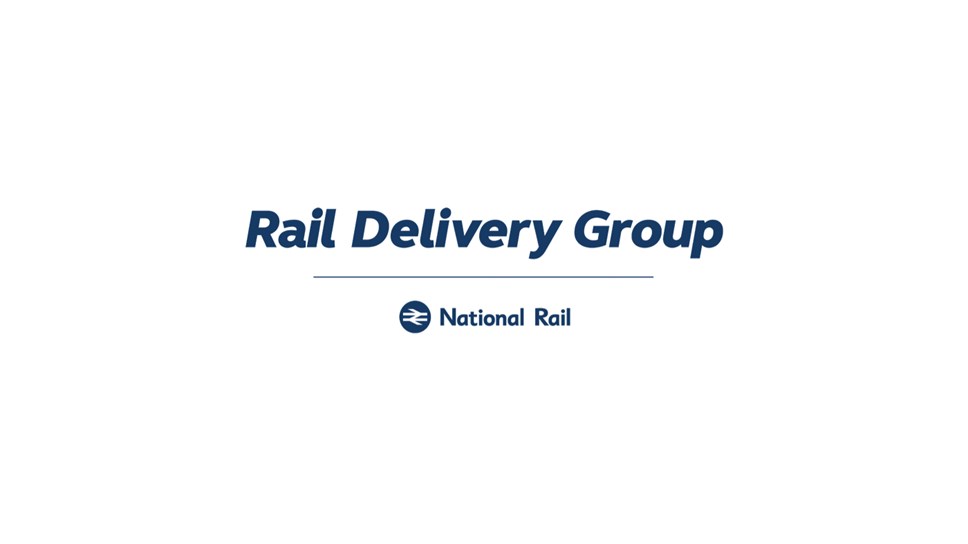
Rail industry expands eligibility for Disabled Persons Railcard to improve inclusivity for all
Today, the rail industry has announced the expansion of the eligibility criteria and simplification of the application process for the Disabled Persons Railcard (DPRC), a major step forward in its commitment to make Britain’s rail network more accessible and customer-focused. The DPRC, which offers a third off rail travel for cardholders and one accompanying adult, will see eligibility expand in two phases so that both visible and non-visible disabilities are better recognised and supported.
The changes follow a review of the DPRC undertaken by RDG, DfT and The Disabled Persons Transport Advisory Committee (DPTAC), which concluded that the Railcard’s eligibility criteria should better reflect modern understanding of disability and the real travel barriers people face. Research conducted by the Rail Delivery Group indicated strong public support for these changes, with 79% of DPRC holders and 73% of non-holders in favour of including non-visible disabilities in the eligibility criteria.
Implemented in two stages, the changes are designed to bring benefit where evidence requirements are straightforward and to introduce robust assessment for more complex cases later in the year, ensuring the process remains fair and reliable while being more inclusive.
Phase 1 will come into effect from 1 March 2026, expanding eligibility to a broader range of customers who can demonstrate their need through existing documentation, for example Blue Badge holders. From September 2026, a second phase will extend eligibility further to include conditions that require clinical or professional evidence, including some long-term or degenerative medical conditions, and neurodiversity where it has a substantial impact on a person's ability to travel by train. Full details of the evidentiary requirements and application guidance will be published ahead of each phase to ensure customers and frontline staff have clear, consistent information.
These reforms form part of a wider commitment to putting customers at the centre of decision-making and to remove barriers that prevent people from travelling with confidence. By aligning DPRC evidence with documents already used by other transport schemes and by developing clearer guidance for more complex assessments, the industry aims to make the application process simpler and more customer-friendly.
Jacqueline Starr, Executive Chair and CEO of Rail Delivery Group, said: “Rail connects people to jobs, education and community and we are determined to make those connections easier to access for everyone.
“Many people face real and varied barriers to travel and widening eligibility for the Disabled Persons Railcard is a step forward in making rail travel a genuine option for more people, listening to how we can help mitigate the additional cost of living with a disability and ensuring our services are shaped around customers’ needs.”
Rail Minister, Lord Peter Hendy, said: “We want to give everyone the tools to use our railway with ease and confidence, which is why we’re expanding eligibility for the Disabled Persons Railcard.
“This will make taking the train more affordable for more disabled passengers, saving up to a third on rail travel, with new changes making it easier to apply for the card too.
“We know there is more work to do to make our railways truly accessible, which is why we published our Accessibility Roadmap, which lays the foundations for a longer-term transformation under Great British Railways.”
The DPRC offers 1/3 off rail travel across Great Britain for both the Railcard holder and one accompanying adult and is in place to support people with conditions that significantly impact their ability to travel by train. The Railcard, available to purchase online from railcard.co.uk or by post, costs £20 for one year or £54 for three years and can save the holder £126 on average annually. The Railcard has no time or minimum spend restrictions.
Contact Information
Rail Delivery Group Media Team
Notes to editors
- Phase 1 will go live on 1 March 2026 and will expand eligibility to include a wider range of disabilities that can be evidenced by existing documentation (for example, Blue Badge holders, Disabled Persons Bus Pass holders, some Armed Forces and Industrial Injuries benefits recipients, people unable to drive on medical grounds, and people without speech.
- Phase 2 will go live in September 2026 and will further extend eligibility to conditions that require professional health evidence and more detailed assessment, including some long-term or degenerative medical conditions, and neurodiversity where it has a substantial impact on a person's ability to travel by train.
- The Disabled Persons Railcard is priced at £20 for one year or £54 for three years. The Railcard continues to represent substantial savings for regular users and a meaningful improvement in the affordability of travel for those who face barriers when using the rail network.
- The rail industry will publish further guidance and full eligibility details on the Disabled Persons Railcard website in the weeks ahead and before each implementation phase. Customers with questions about the changes, evidence requirements or how to apply are encouraged to visit disabledpersons-railcard.co.uk/are-you-eligible/ for the latest information.
